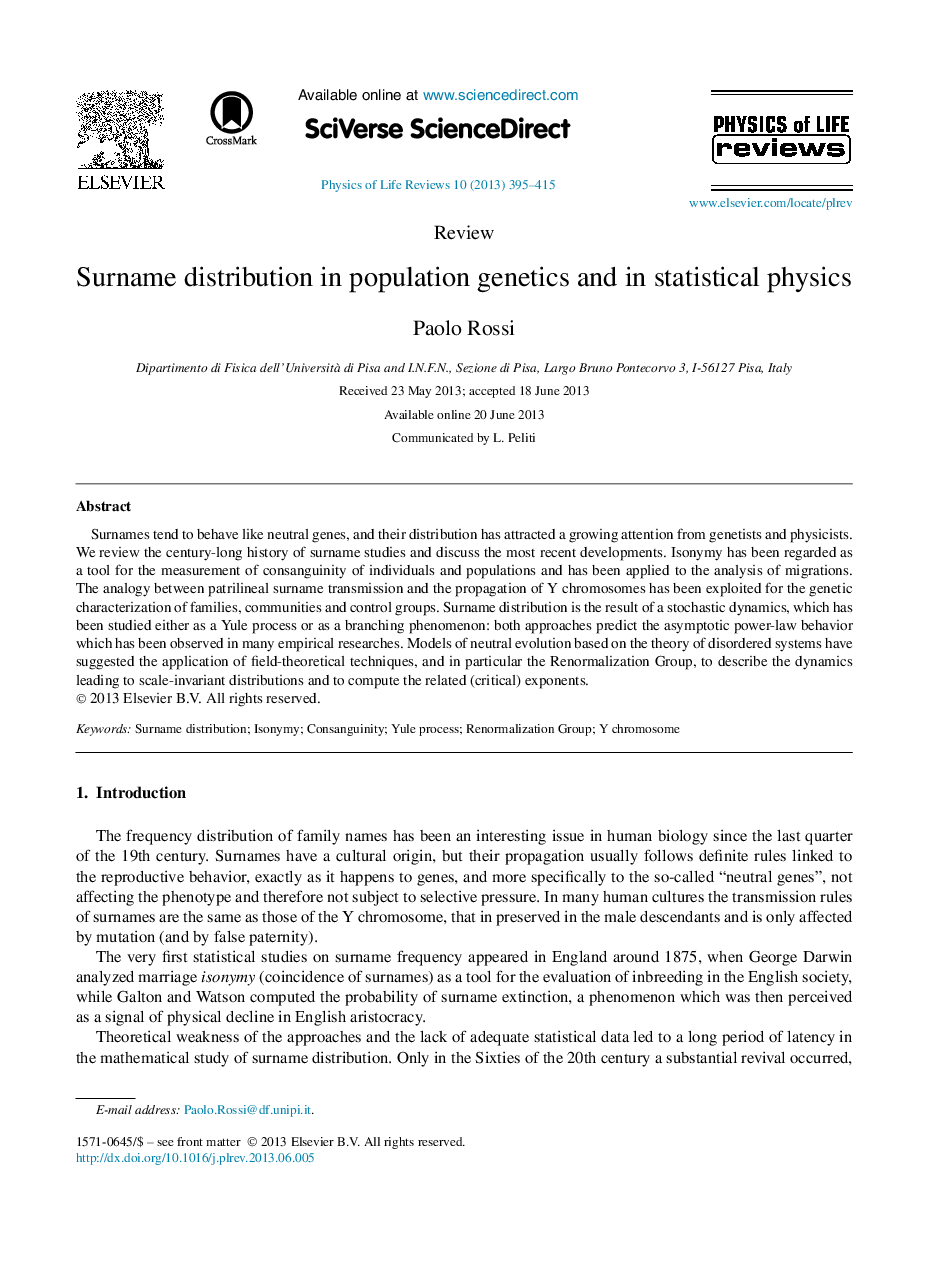| Article ID | Journal | Published Year | Pages | File Type |
|---|---|---|---|---|
| 1868600 | Physics of Life Reviews | 2013 | 21 Pages |
•We review the history of surname studies related to genetics.•We describe the models of surname evolution and their predictions.•We analyze the Renormalization Group approach to surname distribution.•We discuss how to parametrite samples of frequency distributions.
Surnames tend to behave like neutral genes, and their distribution has attracted a growing attention from genetists and physicists. We review the century-long history of surname studies and discuss the most recent developments. Isonymy has been regarded as a tool for the measurement of consanguinity of individuals and populations and has been applied to the analysis of migrations. The analogy between patrilineal surname transmission and the propagation of Y chromosomes has been exploited for the genetic characterization of families, communities and control groups. Surname distribution is the result of a stochastic dynamics, which has been studied either as a Yule process or as a branching phenomenon: both approaches predict the asymptotic power-law behavior which has been observed in many empirical researches. Models of neutral evolution based on the theory of disordered systems have suggested the application of field-theoretical techniques, and in particular the Renormalization Group, to describe the dynamics leading to scale-invariant distributions and to compute the related (critical) exponents.
